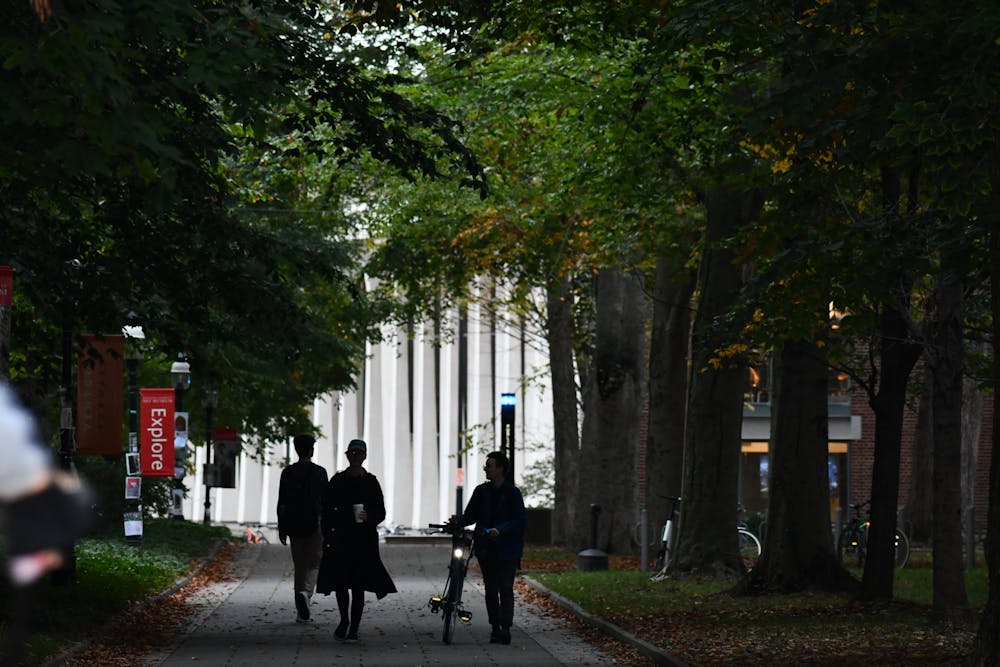Last week, the Department of English hosted Mohammed El-Kurd, a left-wing writer and anti-Israel activist, for its annual Edward W. Said ’57 Memorial Lecture. El-Kurd, a 24-year-old columnist for The Nation, has a long history of making incendiary anti-Israel statements. His past comparisons of Jewish Israelis to “Nazis,” his praise for the Second Intifada, and his defense of a University of Southern California student who said she wanted to “kill” Zionists are just a few examples. El-Kurd’s past statements are obscene and depraved, and his searing anti-Israel views, as shown, obviously verge into blatant antisemitism. In addition, both El-Kurd’s contemptible past commentary and his raucous campus appearance on Feb. 8 clearly demonstrate his preference for brazen prejudice and circus-like provocation over serious intellectual engagement.
Much of the campus’s response to El-Kurd’s appearance was justified and reasonable. El-Kurd’s views were harshly condemned by many Jewish students and the leaders of both of the University’s Jewish chaplaincies. But in their understandable frustration with the English department’s decision to give El-Kurd a platform, some students appeared to urge that important aspects of institutional neutrality to be set aside in order to elicit official condemnations of El-Kurd and his appearance on campus. A letter, authored by Alexandra Orbuch ’25 and reportedly signed by over 40 students, called on the English department to “openly denounce” El-Kurd and “condemn” its own event.
While the letter’s signatories professed “full support” for the robust freedom of speech and freedom of inquiry protections contained within Section 1.1.3. of Rights, Rules, and Responsibilities, they overlooked the part of Section 1.1.3. that affirms that “it is for the individual members of the University community” and “not for the University as an institution” to judge whether speech is “offensive, unwise, immoral, or wrong-headed.” The English department, as a constituent institution of the University, has no business issuing statements or taking official positions on speech-related issues.
Of course, the English department’s actual commitment to institutional neutrality is nonexistent. The acting department chair’s claim that “the Department as a whole does not issue statements,” offered in advance of El-Kurd’s appearance, is laughable and easily proven untrue, given that its website features a highly contestable statement taking ideological positions on racism and colonialism in literature. Even so, the English department’s obvious hypocrisy is not an excuse for community members — who are ostensibly committed to a free and open campus environment — to themselves advocate for further breaches of institutional neutrality. As others have eloquently expressed in this publication’s pages before, a steadfast dedication to upholding institutional neutrality is an essential and inextricable aspect of the University’s stated commitment to freedom of thought, inquiry, and expression. In short, without consistent faithfulness to principles of institutional neutrality, Princeton compromises its ability to fulfill its truth-seeking mission.
It would have been wrong for the English department to denounce and condemn its own event, just as it was wrong for the dean of the School of Public and International Affairs to send an institution-wide memo decrying Kyle Rittenhouse’s acquittal as “dangerous,” and wrong for the classics department to issue an official statement denouncing a professor’s protected speech as “fundamentally incompatible with our mission and values as educators.” The deplorable nature of El-Kurd’s past statements and the widespread violations of institutional neutrality elsewhere at Princeton do not justify attempts by those who profess a commitment to free speech and open inquiry to abandon those principles when they feel it suits them.
Rather, as the University of Chicago’s renowned Kalven Report notes, abridgments of institutional neutrality must be carefully limited to “exceptional” situations where a university’s mission is at risk or academic freedom is itself under threat. El-Kurd’s appearance, while highly inflammatory and understandably offensive to many, does not meet those exceedingly high standards.
Instead of clamoring for institution-wide censures and official condemnations, we as students are called to vigorously debate and critically engage with those whose opinions we find abhorrent or objectionable. Indeed, this is what several attendees at the El-Kurd event sought to do. For those of us who are truly committed to building a university that consistently upholds freedom of thought, inquiry, and expression, such a method of serious and critical engagement represents the only principled approach to challenging anti-intellectual provocateurs like El-Kurd.
Matthew Wilson is a junior in the Department of Politics from Ashburn, Va. He can be reached at mxwilson@princeton.edu.








